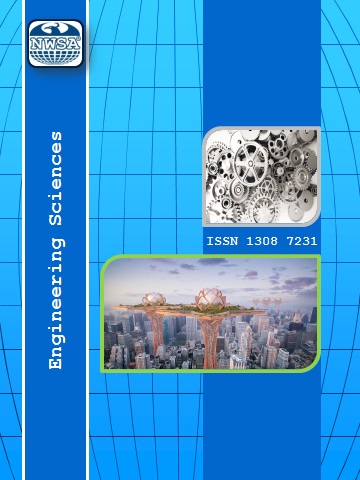References
1. Barry, M.L. and Du Plessis, Y., (2007). Emotional intelligence: a crucial human resource management ability for engineering project managers in the 21 st century. Paper presented at the AFRICON 2007.
2. Butler, C.J. and Chinowsky, P.S., (2006). Emotional intelligence and leadership behavior in construction executives. 22(3):119-125.
3. Castañeda, J., Tucker, R., and Haas, C., (2005). Workers’ skills and receptiveness to operate under the Tier II construction management strategy. Journal of Construction Engineering and Management, 131(7):799-807.
4. Clarke, N., (2010). Emotional Intelligence and Its Relationship to Transformational Leadership and Key Project Manager Competences. Project Management Journal, 41(2):5-20.
5. Cowie, G., (2003). The importance of people skills for project managers. Industrial Commercial Training.
6. Davis, S.A., (2011). Investigating the impact of project managers' emotional intelligence on their interpersonal competence. 42(4):37-57.
7. Geoghegan, L. and Dulewicz, V., (2008). Do project managers’ leadership competencies contribute to project success? Project Management Journal, 39(4):58-67.
8. Goleman, D., (1998). Working with emotional intelligence: Bantam.
9. Harris, F., McCaffer, R., Baldwin, A., and Edum-Fotwe, F., (2020). Modern construction management: John Wiley & Sons.
10. Kang, Y., Jin, Z., Hyun, C., and Park, H., (2018). Construction management functions for developing countries: Case of Cambodia. Journal of Management in Engineering, 34:05018004.
11. Lindebaum, D. and Jordan, P., (2012). Relevant but exaggerated: the effects of emotional intelligence on project manager performance in construction. Construction Management and Economics, 30(7):575-583.
12. Love, P., Edwards, D., and Wood, E., (2011). Loosening the Gordian knot: the role of emotional intelligence in construction. Engineering, Construction Architectural Management.
13. Maqbool, R., Sudong, Y., Manzoor, N., and Rashid, Y., (2017). The Impact of Emotional Intelligence, Project Managers’ Competencies, and Transformational Leadership on Project Success: An Empirical Perspective. Project Management Journal, 48(3):58-75.
14. Mayer, J.D., Roberts, R.D., and Barsade, S.G., (2008). Human abilities: Emotional intelligence. 59:507-536.
15. Mazur, A., Pisarski, A., Chang, A., and Ashkanasy, N., (2014). Rating defence major project success: The role of personal attributes and stakeholder relationships. International Journal of Project Management, 32(6):944-957.
16. Mount, G., (2006). The role of emotional intelligence in developing international business capability: EI provides traction.
17. Müller, R. and Turner, R., (2010). Leadership competency profiles of successful project managers. International Journal of Project Management, 28(5):437-448.
18. Pant, I. and Baroudi, B., (2008). Project management education: The human skills imperative. International Journal of Project Management, 26(2):124-128.
19. Potter, E.M., Egbelakin, T., Phipps, R., and Balaei, B., (2018). Emotional intelligence and transformational leadership behaviours of construction project managers. Journal of Financial Management of Property.
20. Rezvani, A., Chang, A., Wiewiora, A., Ashkanasy, N.M., Jordan, P.J., and Zolin, R., (2016). Manager emotional intelligence and project success: The mediating role of job satisfaction and trust. International Journal of Project Management, 34(7):1112-1122.
21. Stephens, J.P. and Carmeli, A., (2016). The positive effect of expressing negative emotions on knowledge creation capability and performance of project teams. International Journal of Project Management, 34(5):862-873.
22. Sunindijo, R. and Hadikusumo, B., (2005). Benefits of emotional intelligence to project management: a study of leadership and conflict resolution style of project managers in Thailand. Paper presented at the Proceedings of Research Week International Conference, The Queensland University of Technology, Brisbane, Australia.
23. Sunindijo, R.Y., (2015). Project manager skills for improving project performance. International Journal of Business Performance Management, 16(1):67-83.
24. Sunindijo, R.Y., Hadikusumo, B.H., and Ogunlana, S., (2007a). Emotional intelligence and leadership styles in construction project management. Journal of Management in Engineering, 23(4):166-170.
25. Sunindijo, R.Y., Hadikusumo, B.H., and Ogunlana, S.J., (2007b). Emotional intelligence and leadership styles in construction project management, 23(4):166-170.
26. Sunindijo, R.Y. and Hadikusumo, B.H.W., (2014). Emotional Intelligence for Managing Conflicts in the Sociocultural Norms of the Thai Construction Industry. Journal of Management in Engineering, 30(6):04014025.
27. Torres-Machí, C., Carrión, A., Yepes, V., and Pellicer, E., (2013). Employability of graduate students in construction management. Journal of Professional Issues in Engineering Education, 139(2):163-170.
28. Trejo, A., (2014). Emotional Intelligence and Project Outcomes in Technology. International Management Review, 10(1).
29. Troth, A.C., Jordan, P.J., Lawrence, S.A., and Tse, H.O., (2012). A multilevel model of emotional skills, communication performance, and task performance in teams. 33(5):700-722.
30. Turner, J.R. and Müller, R., (2005). The Project Manager's Leadership Style as a Success Factor on Projects: A Literature Review. 36(2):49-61.
31. Turner, R. and Lloyd-Walker, B., (2008). Emotional intelligence (EI) capabilities training: can it develop EI in project teams? International Journal of managing projects in business.
32. Wu, G., Liu, C., Zhao, X., and Zuo, J., (2017). Investigating the relationship between communication-conflict interaction and project success among construction project teams. International Journal of Project Management, 35(8):1466-1482.
33. Yang, L.R., Huang, C.F., and Wu, K.S., (2011). The association among project manager's leadership style, teamwork and project success. International Journal of Project Management, 29(3):258-267.
34. Zhang, F., Zuo, J., and Zillante, G., (2013). Identification and evaluation of the key social competencies for Chinese construction project managers. International Journal of Project Management, 31(5):748-759.
 +90(535) 849 84 68
+90(535) 849 84 68 nwsa.akademi@hotmail.com
nwsa.akademi@hotmail.com Fırat Akademi Samsun-Türkiye
Fırat Akademi Samsun-Türkiye
